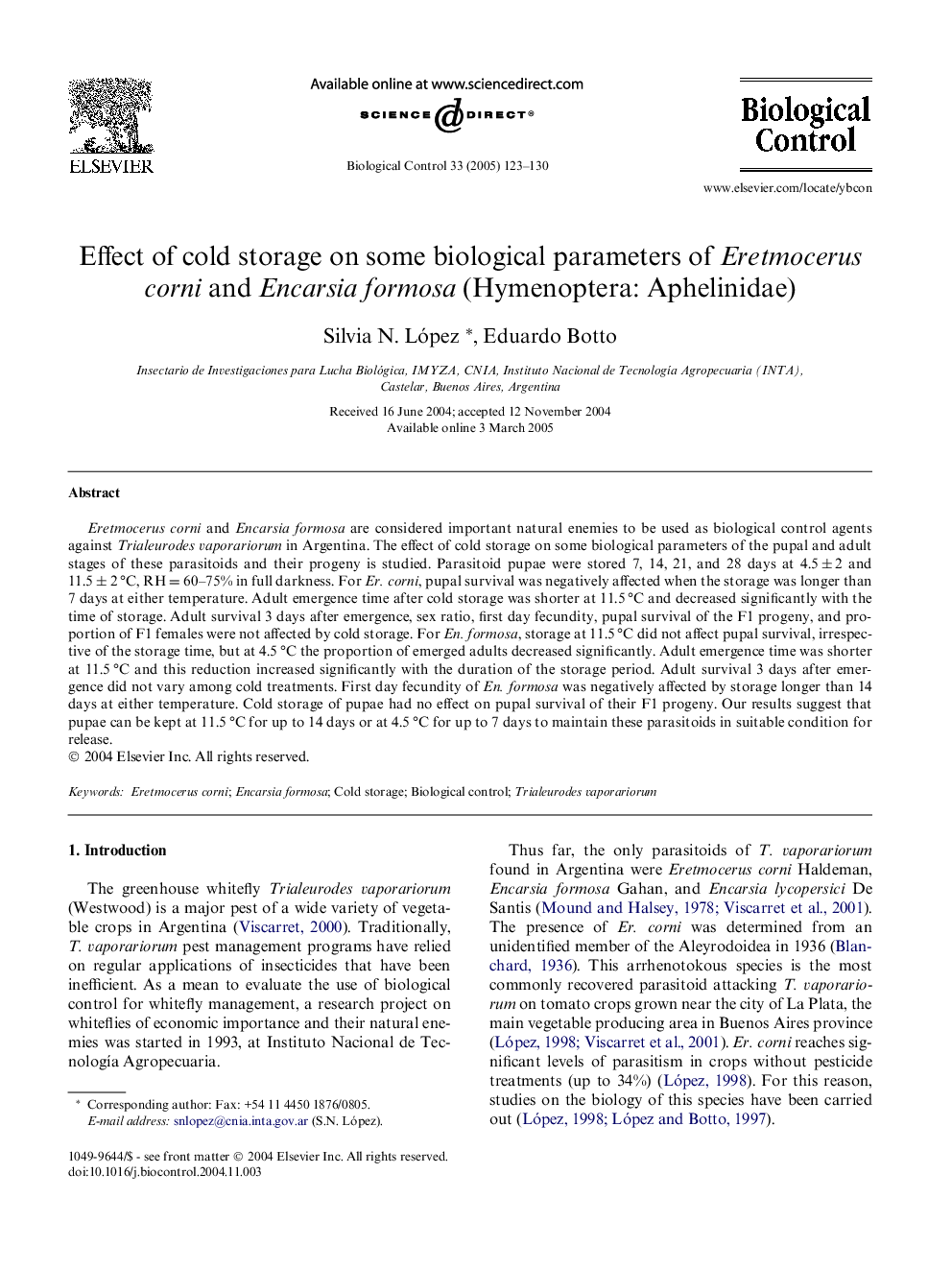| Article ID | Journal | Published Year | Pages | File Type |
|---|---|---|---|---|
| 9472017 | Biological Control | 2005 | 8 Pages |
Abstract
Eretmocerus corni and Encarsia formosa are considered important natural enemies to be used as biological control agents against Trialeurodes vaporariorum in Argentina. The effect of cold storage on some biological parameters of the pupal and adult stages of these parasitoids and their progeny is studied. Parasitoid pupae were stored 7, 14, 21, and 28 days at 4.5 ± 2 and 11.5 ± 2 °C, RH = 60-75% in full darkness. For Er. corni, pupal survival was negatively affected when the storage was longer than 7 days at either temperature. Adult emergence time after cold storage was shorter at 11.5 °C and decreased significantly with the time of storage. Adult survival 3 days after emergence, sex ratio, first day fecundity, pupal survival of the F1 progeny, and proportion of F1 females were not affected by cold storage. For En. formosa, storage at 11.5 °C did not affect pupal survival, irrespective of the storage time, but at 4.5 °C the proportion of emerged adults decreased significantly. Adult emergence time was shorter at 11.5 °C and this reduction increased significantly with the duration of the storage period. Adult survival 3 days after emergence did not vary among cold treatments. First day fecundity of En. formosa was negatively affected by storage longer than 14 days at either temperature. Cold storage of pupae had no effect on pupal survival of their F1 progeny. Our results suggest that pupae can be kept at 11.5 °C for up to 14 days or at 4.5 °C for up to 7 days to maintain these parasitoids in suitable condition for release.
Related Topics
Life Sciences
Agricultural and Biological Sciences
Agronomy and Crop Science
Authors
Silvia N. López, Eduardo Botto,
